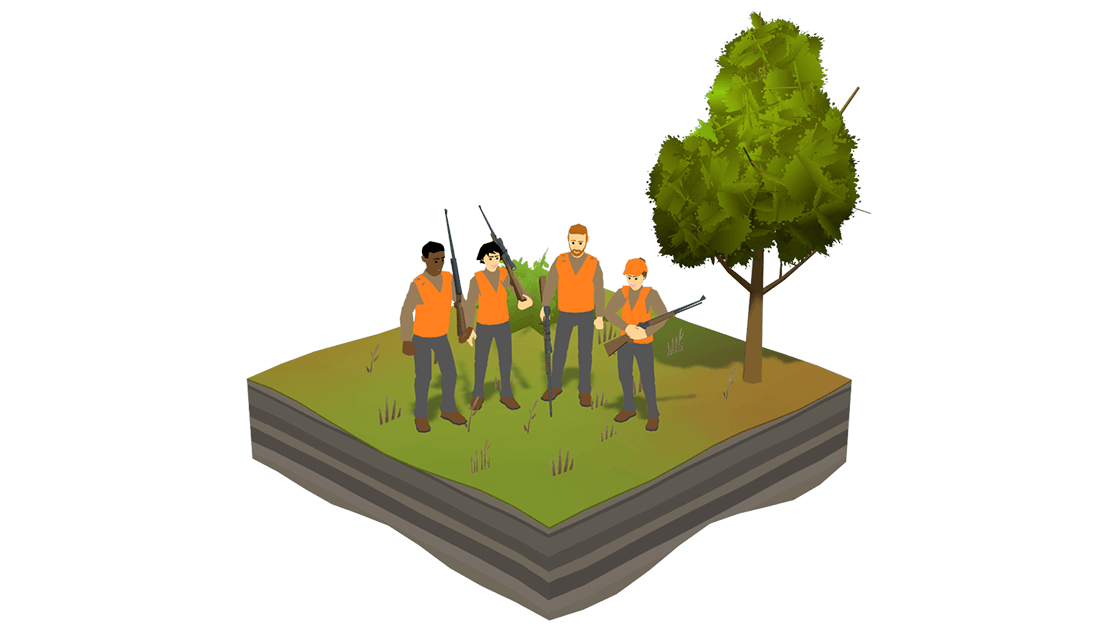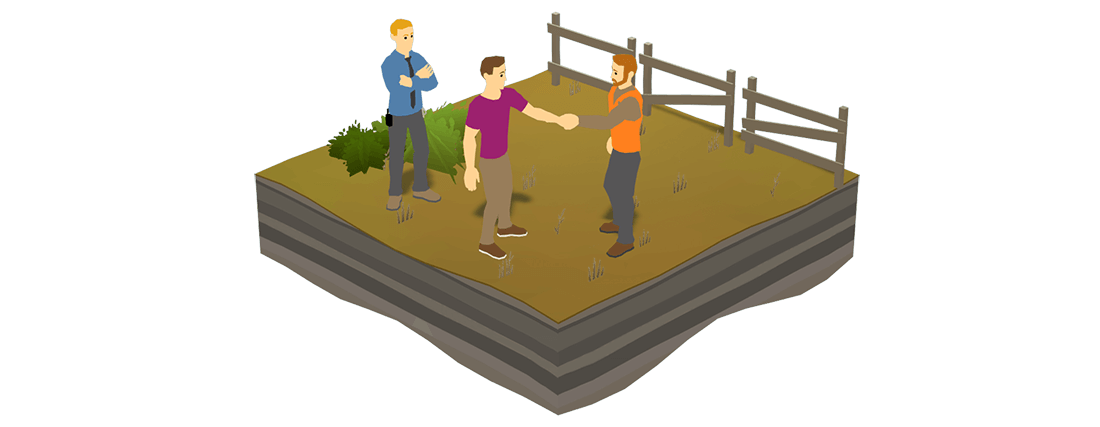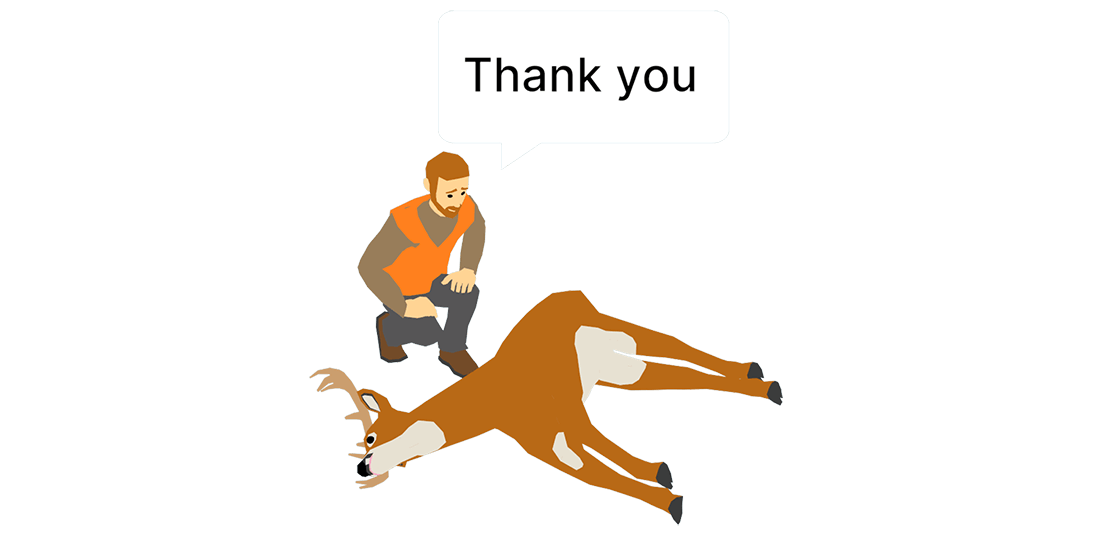Hunting Responsibilities & Ethics

The future of hunting depends on you. There are many people who are looking very closely at hunters and hunting behavior. How we behave and how other people see us will determine whether or not hunting will continue as a way of life.
A self-respecting hunter will develop his hunting skills to enjoy them safely. He chooses the right equipment to use and maintains them properly. He knows his limits and respects them and always strives to become a better hunter. A responsible hunter will only hunt with ethical hunters.
What are the ethics of hunting?

Ethics are standards of behavior which are generally considered to be morally correct.
An ethic is:
- a set of values associated with a culture or group
- distinction between right and wrong
- moral duty
- obligation to society and community
Hunters are part of a very special group. They have a set of ethics that guide how hunters conduct themselves.
Some of these values are so common among hunters that all are expected to live by the same "ethical rules." An example of this would be the responsibility of each of us to ask for landowner permission to hunt.
Some ethical decisions are very personal with no "right or wrong" answers. In these cases, what you do is up to your own idea of ethical behavior. An example of this type of ethical decision is whether or not you choose to take a full limit of squirrels.
One definition of responsible hunter is: "A person who knows and respects the animals hunted, follows the laws, and behaves in a way that will satisfy what society expects of him or her as a hunter." Jim Posewitz - Beyond Fair Chase
How Fair Chase Hunting Works?
Fair chase balances the skills and equipment of the hunter with the abilities of the animal to escape. Standards of fair chase are defined by law, regional preferences and personal choice.
Fair chase is primarily defined by individuals and their level of hunting ability. The expert hunter may use more restrictive and less effective techniques than the novice hunter. Fair chase emphasizes self-restraint and the development of skills.
What is meant by the term hunter responsibility?
The animals hunted are very important to the hunter. As a hunter, you live within the natural life and death cycles of nature. Before you can "belong" to nature, you must know and appreciate the animals hunted, the habitat they live in, and the way the animals live.
A responsible hunter brings a quick and humane death to the animal. The "one-shot kill" should be foremost in your mind. This is why responsible hunters must understand the anatomy of the birds and animals they hunt to kill game quickly.
Of course, this begins at the range. You must ensure you can hit your target in the correct place. Proper sighting in your equipment is the first step. Then you must practice until you know exactly what your limits are. Finally, you must make sure you stay within those limits when in the field. These types of actions show respect for the animal you hunt.
A responsible hunter can distinguish his game. He only shoots well-identified game.
The respect doesn't stop here. Once the animal is taken, you must look after it properly. It is your responsibility to ensure the meat is not wasted. You may want to mount the antlers to remember the hunt. Taking some good quality pictures might be in order. All of these types of things show respect for the animal you have harvested.
Wounding animals by taking poor shots shows disrespect for the animal.
Many laws have been enacted because hunters asked for them. Responsible hunters will obey the laws and not bend the rules to suit themselves.

Respect and courtesy are essential when hunting private land
Landowners, non-hunters, and fellow hunters expect responsible behavior from all hunters. When we ask non-hunters if they support our activities as hunters, we find two conditions are common.
- Animals must have a fair opportunity to escape
- Hunters must make every effort to retrieve wounded wildlife
Landowners expect simple courtesy from hunters who want to access their land. They expect to be asked permission, to have instructions obeyed, and to have their property treated with respect.
If you plan on bringing a hunting companion, always inform the landowner. Never cut fences and do not destroy crops. If you camp overnight make sure to ask permission and before leaving always thank the landowner.
Hunters expect common courtesy from other hunters. Don't be a game hog, don't be selfish and don't interfere with someone else's hunt.
Behave with courtesy and kindness towards campers, wildlife observers, fishermen, trappers, etc. it is the best guarantee that hunting, as we know it, can continue for a long time.
These behaviors are all part of being a responsible hunter.
